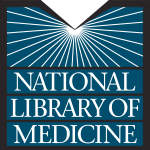- 업종: Library & information science
- Number of terms: 152252
- Number of blossaries: 0
- Company Profile:
The National Library of Medicine (NLM), on the campus of the National Institutes of Health in Bethesda, Maryland, is the world's largest medical library. The Library collects materials and provides information and research services in all areas of biomedicine and health care.
Infection caused by the bacterium Streptococcus pneumonia, which is spread through contact with respiratory droplets from a person who is infected with or carrying the bacteria. The bacteria are a major cause of common illnesses, such as inflammation of the sinuses (sinusitis), but can also result in life-threatening infections, including meningitis and pneumonia. People with weakened immune systems, including people with HIV, are at higher risk for bacterial pneumonia, including Streptococcus pneumonia infection, than people with healthy immune systems.
Industry:Health care
Infection with the hepatitis B virus (HBV). HBV can be transmitted through blood, semen, or other body fluids during sex or injection-drug use. Because HIV and HBV share the same modes of transmission, people infected with HIV are often also coinfected with HBV. HBV infection progresses more rapidly in people coinfected with HIV than in people infected with HBV alone.
Industry:Health care
Infection with the hepatitis C virus (HCV). HCV is usually transmitted through blood and rarely through other body fluids, such as semen. HCV infection progresses more rapidly in people coinfected with HIV than in people infected with HCV alone.
Industry:Health care
Inflammation and possible scarring of the tissue that surrounds the air sacs of the lungs (lung interstitium). Symptoms of lymphoid interstitial pneumonitis (LIP) include fever, cough, and difficult breathing (dyspnea). LIP is associated with autoimmune diseases, lymphoproliferative disorders, and certain viral infections, such as HIV or Epstein-Barr virus. LIP is an AIDS-defining condition in children infected with HIV who are 13 years or younger.
Industry:Health care
Inflammation of any segment of the gastrointestinal tract, from the mouth to the anus.
Industry:Health care
Inflammation of the brain, usually caused by a viral infection. Encephalitis can also be caused by a bacterial infection, toxin, or autoimmune process. Symptoms of encephalitis range from mild, such as flu-like symptoms, to severe, such as seizures. In people with HIV, encephalitis may be due to HIV infection or opportunistic infections, such as Toxoplasma gondii infection.
Industry:Health care
Inflammation of the colon (large intestine). Symptoms can include abdominal pain, nausea, and diarrhea. Colitis may be associated with HIV infection or related opportunistic infections.
Industry:Health care
